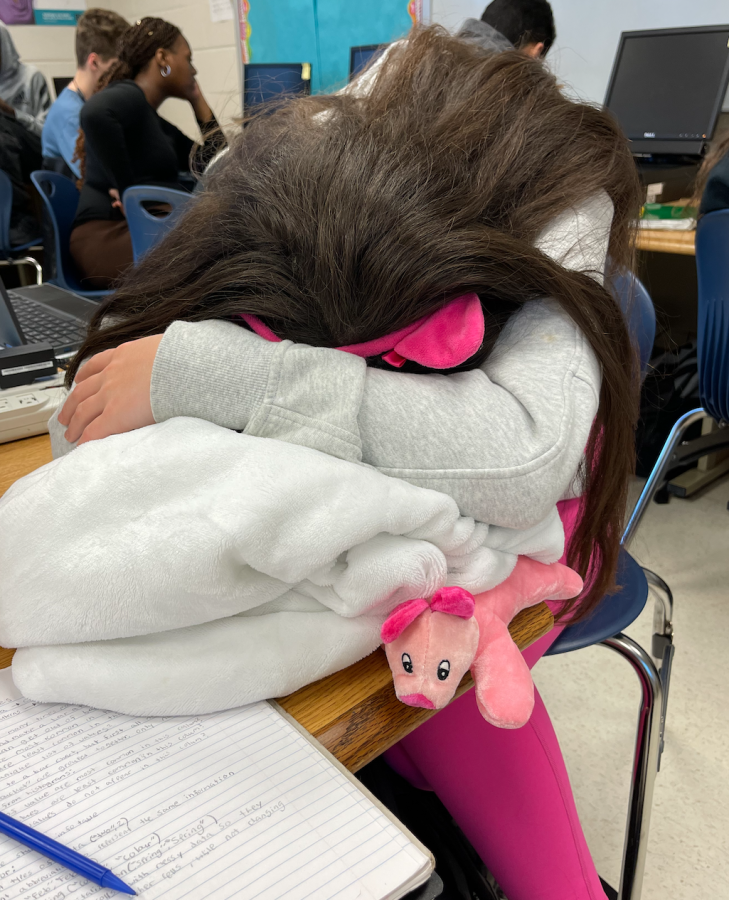Productivity is self-care and self-care is productivity
WCHS Sophomore Jenna Piggot sleeps on her desk during class. A free period would have helped her overcome this tiredness.
March 28, 2023
A free period during the school day can be incredibly beneficial for students for a variety of reasons. These periods provide an opportunity for students to take a break from the rigors of academic work, to engage in activities that promote mental and physical wellness, and to work on projects that are important to them. Students are able to take a break from the demands of academic work when given a free period. The pressure of constantly being on task and completing assignments can be overwhelming for many students, and a free period can provide a much-needed break. Students can use this time to rest, relax, and recharge their batteries, which can improve their mental and emotional well-being. In addition, a break from academic work can help students to be more productive and engaged when they return to their studies.
Free periods provide an opportunity for students to engage in activities that promote their physical and mental health. Physical activity has been shown to have a positive impact on mental health, and many students would benefit from having more time to exercise or engage in other physical activities. Free periods allow students to work on projects that are important to them. Many students have interests and passions that are not addressed in the traditional school curriculum, and a free period can provide an opportunity for them to pursue these interests. This could include working on a creative project, starting a club, or doing research on a topic of interest. By allowing students to pursue their own interests, schools can help foster a love of learning and encourage students to be more engaged in their studies.
On the other hand, there are some potential drawbacks to having free periods. Some students may use this time to engage in activities that are not productive or may be distracting to others. However, these concerns can be addressed through clear guidelines and expectations for behavior during free periods. Schools can also use this time to provide additional support for students who may be struggling academically or socially.
There are many benefits to having a free period every day. These periods can provide students with a much-needed break from academic work, an opportunity to engage in activities that promote their physical and mental health, and a chance to pursue their own interests. By incorporating free periods into their schedules, schools can help to reduce stress and anxiety among students, foster a sense of community, and promote a love of learning.



